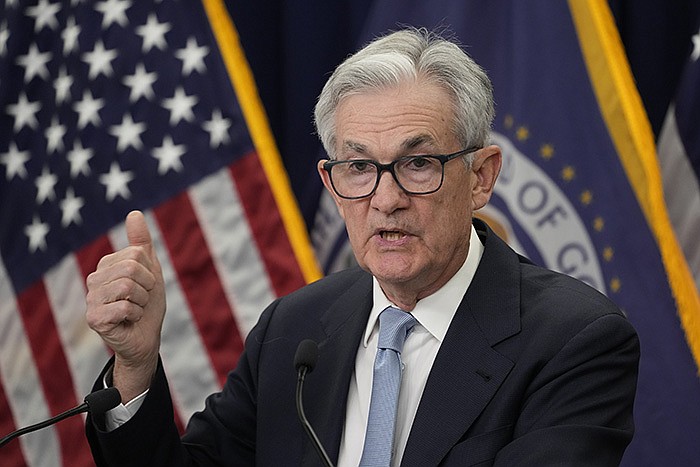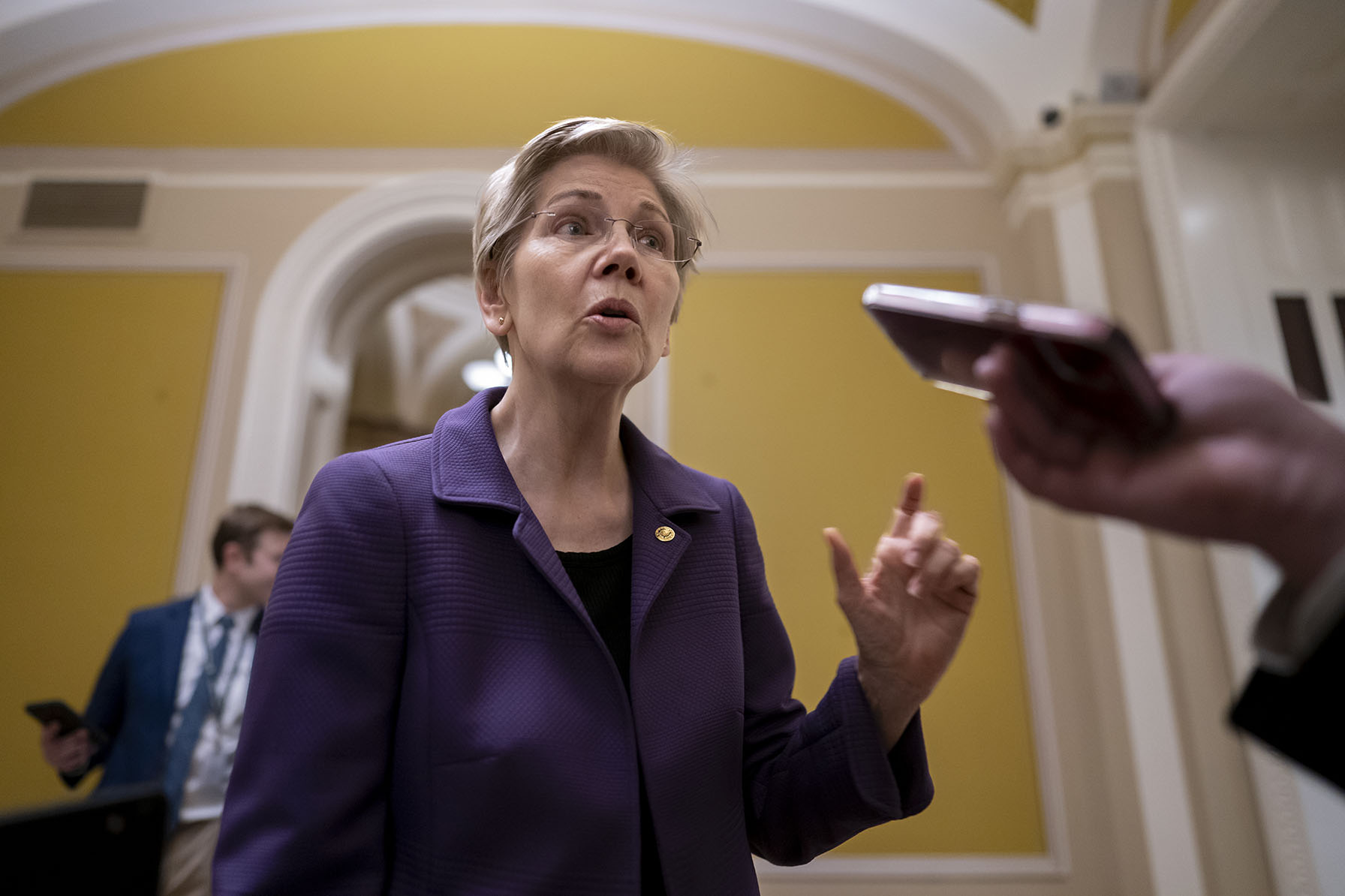The Federal Reserve raised its benchmark interest rate by a quarter of a percentage point Wednesday, moving forward with its year-long fight against high inflation despite concern its rate increases can fuel instability in the banking system.
Financial markets expected the quarter-point move, which brings the Fed's base policy rate to between 4.75-5%. The markets were muted by midday, then rose slightly off the rate increase announcement before a late dive to close trading on the day with losses. The S&P 500 fell 65.90 points to 3,936.97. The Dow dropped 530.49 points to 32,030.11, and the Nasdaq fell 190.15 points to 11,669.96.
The Federal Open Market Committee voted unanimously in approving the increase, which brings the base policy rate to its highest level since September 2007, when rates were at their peak on the eve of the financial crisis. The move is the second straight quarter-point increase after a string of aggressive moves starting in March 2022, when the benchmark rate was near zero.
"We are committed to restoring price stability, and all of the evidence says that the public has confidence that we will do so," Fed Chair Jerome Powell said at a news conference after the increase was announced. "It is important that we sustain that confidence with our actions as well as our words."
Officials are prepared to raise rates higher if needed, Powell said.
He reiterated what Fed officials noted in an earlier statement but acknowledged recent banking turmoil is "likely to result in tighter credit conditions for households and businesses, which would in turn affect economic outcomes."
Powell added: "It's too soon to tell how monetary policy should respond."
Less than two weeks after the collapse of Silicon Valley Bank and Signature Bank of New York jarred the nation's financial stability, Fed policymakers said in their statement Wednesday the banking system is "sound and resilient."
Still, events from the past few weeks are expected to hamper the economy, which the central bank is still trying to slow down to control price increases. The central bank is also facing questions about its regulatory oversight of Silicon Valley, as Washington tries to figure out whether the government could have prevented the turmoil in the banking sector.
"There is risk for the Fed here," Tim Duy, a Fed expert at the University of Oregon and chief economist at SGH Macro Advisors, wrote in an analyst note. "If the Fed hikes, it must be reasonably confident that regulators have ring-fenced the banking problems. If the Fed hikes rates and bank failures multiply, the political fallout will be intense."
In a fresh crop of economic projections, Fed officials penciled in one more quarter-point increase this year, though future moves depend heavily on how the economy behaves. Officials otherwise made small tweaks to their previous estimates from December. They now expect the unemployment rate to end the year at 4.5% (down from 4.6% the last time the bank made projections) and that the economy will grow by 0.4% this year (down from 0.5% they projected in December).
[DOCUMENT: Read Federal Reserve's full statement » arkansasonline.com/323fomc/]
The Fed "anticipates that some additional policy firming may be appropriate to attain a stance of monetary policy that is sufficiently restrictive to return inflation to 2% over time," officials said in their post-meeting statement. In the past few months, policymakers and economists have shifted their tunes -- at times expecting an inevitable recession, no recession, persistently high inflation or an all-out banking catastrophe.
The Fed likes a plan. But recently its attempts to look ahead have been thwarted by a lasting global pandemic and Russia's war in Ukraine since February 2022. Now the rapid interest rate increases of the past year are also contributing to a worrisome degree of instability in the financial system.
Bank failures don't happen often. But it is even more rare for such a shock to happen in the days right before a Fed meeting, when officials are barred from speaking publicly about monetary policy. Typically officials will use the weeks before a meeting to lay the groundwork for an upcoming rate increase so an official announcement is old news to financial traders, economists and business executives who've been reading the Fed's tea leaves.
The collapses of Silicon Valley and Signature prompted all-out interventions from the Fed and the Biden administration to stave off even bigger problems. The whiplash has focused new attention on financial regulation, especially since Silicon Valley imploded despite advance warnings and existing safeguards.
It has also put the Fed -- which works hard to maintain its independence -- under a harsh political spotlight. Earlier Wednesday, Sens. Rick Scott, R-Fla., and Elizabeth Warren, D-Mass., unveiled legislation aimed to replace the Fed's watchdog with an inspector general appointed by the president and confirmed by the Senate.
For more than a year, Democrats and Republicans have been at odds over the Fed's policies, with Scott and Warren typically holding opposite views. But scrutiny of the central bank has taken on a new dimension as lawmakers of both parties ask whether the Fed failed in its supervisory duties. That's coming at the same time that more officials, including Democrats on the Senate Banking Committee, are calling for an end to the rate increases, fearing repercussions for the job market.
"The recent bank collapses and regulatory failures by the Fed have underscored the urgent need for a truly independent Inspector General to hold Fed officials accountable for any lapses or wrongdoing," Warren said in a statement.
The central bank's meetings typically revolve around inflation, the job market and whether its approach to slowing the economy is working. The last time Powell appeared in public, two weeks ago, he warned Congress that the central bank was seeing signs the economy was heating back up and was prepared to be more aggressive in raising interest rates.
Information for this article was contributed by Rachel Siegel of The Washington Post, Catarina Saraiva of Bloomberg News (WPNS) and Stan Choe of The Associated Press.

